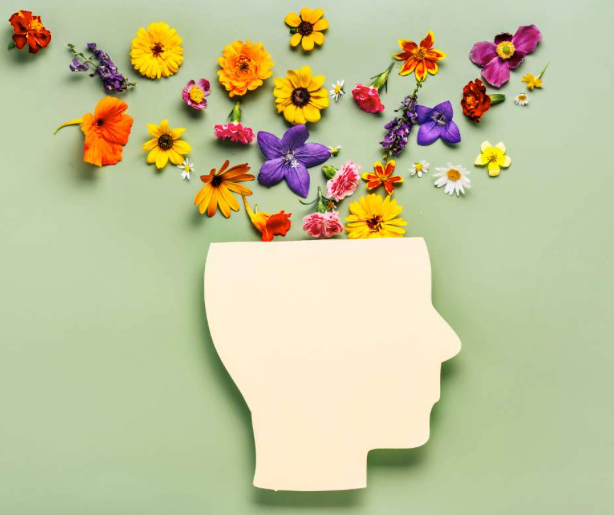
The Connection Between Ayurvedic Wellness and Mental Health
The Connection Between Ayurvedic Wellness and Mental Health

Ayurveda, or the science of life, is an ancient system of medicine originated from India, that has been gaining popularity in recent years for its holistic approach to wellness. It emphasizes the importance of mental health in overall well-being, recognizing the interconnectedness between the mind, body, and spirit.
According to Ayurveda, mental health is closely connected to the balance of three doshas - Vata, Pitta, and Kapha - within the body. Imbalances in these doshas can lead to various health conditions, including anxiety, depression, and insomnia, which can affect overall well-being.
Ayurvedic practices, such as meditation, yoga, and herbal remedies, can help balance these doshas and improve mental health. These practices are recommended by the World Health Organization (WHO) as part of mental health promotion.
What is Ayurvedic Wellness?

Ayurvedic wellness is a holistic approach to health that focuses on the balance of the mind, body, and spirit. It emphasizes prevention, rather than just treating symptoms, and aims to improve overall well-being through natural remedies and practices.
Ayurvedic practitioners use a combination of diet, herbs, massage, meditation, and yoga to help bring balance to the body's doshas and improve mental and physical health.
By addressing all aspects of health, Ayurveda offers a personalized approach to wellness that can help individuals reach their full potential in every aspect of their lives.
Understanding the Doshas
In Ayurveda, the three doshas - Vata, Pitta, and Kapha - are believed to govern different aspects of bodily functions and mental states and influence your overall health.
Vata is responsible for communication, movement, and creativity, while Pitta governs metabolism and digestion. Kapha is associated with stability, grounding, and emotional support.
By understanding your individual dosha makeup and any imbalances within them, Ayurvedic practitioners can help you tailor a wellness plan specific to your needs. This personalized approach can result in better physical health, improved mood, and a greater sense of overall well-being.
The Connection Between Ayurvedic Wellness and Mental Health

Ayurvedic wellness recognizes that we need a balance between the mind, body, and spirit in whatever stage of life we are. This means that imbalances within the body can lead to issues such as anxiety, depression, and insomnia.
Ayurvedic practices such as meditation, yoga, and herbal remedies can help balance these doshas and improve mental health.
By treating the root cause of the problem instead of just addressing the symptoms, Ayurveda offers a more holistic approach to mental health that considers a number of factors and all aspects of an individual's well-being. Incorporating Ayurvedic practices into your daily routine can lead to a greater sense of calmness and clarity.
Balancing Your Doshas with Meditation

Meditation is a powerful tool for balancing your doshas. By quieting the mind and reducing stress, meditation can help balance Vata, Pitta, and Kapha and keep mental disorders in control. To tailor your meditation practice to your specific dosha makeup, work with an Ayurvedic practitioner who can recommend specific techniques and practices.
Vata
Vata types may benefit from a grounding meditation practice that focuses on breathwork and visualization. This can help calm the nervous system and promote feelings of stability and balance.
Pitta
Pitta types may benefit from a cooling meditation practice that focuses on relaxation and self-compassion. This can help reduce stress and promote inner peace.
Kapha
Kapha types may benefit from an energizing meditation practice that focuses on movement and breathwork. This can help stimulate the body and mind, promoting feelings of motivation and inspiration.
Ayurvedic Nutrition for Mental and Emotional Stability

Ayurvedic nutrition is a key component of overall wellness, including mental and emotional stability. In Ayurveda, food is viewed as medicine and is chosen based on an individual's unique dosha makeup.
For example, Vata types may benefit from warming foods like soups and stews, Pitta types may benefit from cooling foods like fresh fruits and vegetables, and Kapha types may benefit from spicy, stimulating foods. By choosing foods that balance your doshas, you can improve your digestive health, boost your energy levels, and promote mental clarity and emotional stability.
Identifying Your Dosha Imbalances

Identifying your dosha imbalances is essential for achieving optimal wellness in Ayurveda.
Common signs of Vata imbalance include anxiety, dry skin, and difficulty sleeping. Pitta imbalance may manifest as irritability, inflammation, and digestive issues. And Kapha imbalance can present as lethargy, weight gain, and depression.
By recognizing these imbalances and working with an Ayurvedic practitioner to address them through lifestyle choices, herbal remedies, and other treatments, you can restore balance to your doshas and improve your overall well-being.
Healing Your Mental Health with Ayurvedic Practices
Ayurveda offers a holistic approach to healing mental health issues by addressing the root causes of imbalances. Along with specific nutrition and movement practices, Ayurvedic practitioners may recommend meditation, pranayama (breathing exercises), and other mindfulness techniques as part of a comprehensive treatment plan.
By cultivating self-awareness and incorporating these practices into your daily routine, you can reduce stress, increase emotional resilience, and restore balance to your mind, body, and spirit. Remember, true wellness is about more than just the absence of disease - it's about living in harmony with your natural state of being.
The Emotional Benefits of Ayurvedic Lifestyle Practices
Ayurvedic lifestyle practices are designed to help you maintain balance in all areas of your life. From mindful eating and regular exercise to daily self-care rituals and restful sleep, Ayurveda promotes holistic wellness by addressing the interconnectedness of the mind, body, and spirit.
By embracing these practices, you can boost your immune system, reduce inflammation, increase energy levels, improve digestion, and enhance mental clarity. Incorporating Ayurvedic principles into your daily routine can help you feel more grounded, centered, and connected to your inner wisdom.
Frequently Asked Questions about Ayurvedic Wellness
To provide a comprehensive exploration of the topic, we want to respond to common uncertainties preemptively. This helps to deepen the reader's understanding, ensuring they are well-informed about the multi-faceted relationship between Ayurvedic practices and mental health.
Can Ayurvedic practices be used in conjunction with traditional Western medical treatments for mental health?
Yes, Ayurvedic practices can be used in conjunction with traditional Western medical treatments for mental health. It's important to consult with both your Ayurvedic practitioner and your Western medical provider to ensure that all treatments are safe and compatible with each other.
The World Health Organization recognizes the importance of health promotion, which encompasses mental health promotion. Ayurveda aligns with this approach by emphasizing a holistic view of well-being and offering natural remedies and practices to support mental health.
Conclusion

Ayurvedic wellness is a holistic approach to health and well-being that focuses on balancing the mind, body, and spirit. Incorporating Ayurvedic practices into your daily routine can have numerous benefits for mental and emotional health, including reducing stress and anxiety and increasing emotional stability.
It's important to consult with both your Ayurvedic practitioner and Western medical provider when seeking treatment for mental health concerns. Nourishing your body with healthy food and engaging in self-care practices can also support overall wellness. By listening to your inner wisdom and honoring your unique constitution, you can achieve optimal well-being through Ayurveda!




